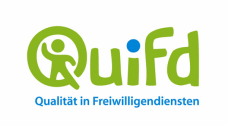In diesem Artikel stellt Félix Edem Kodzo Ekpeko die Struktur, die Ziele und aktuelle Prozesse des West African weltwaerts Network (WAwN) vor, welches im Jahr 2018 im Rahmen der weltwärts Partnerkonferenz in Lomé, Togo gegründet wurde. Wir freuen uns sehr, einen Einblick in die Arbeit des Netzwerks von einem der Gründungsmitglieder zu erhalten, der zudem als Programmkoordinator in der Association Togolaise des Volontaires au Travail (ASTOVOT), einer Partnerorganisation des weltwärts-Programms tätig ist. Als Mitglied des WAwN und als Partner im weltwärts-Programm nahm Félix Edem Kodzo Ekpeko an der Partnerkonferenz in Ghana teil, die Anfang des Jahres mit 60 Teilnehmenden aus verschiedenen westafrikanischen Ländern und aus Deutschland in Accra stattfand. Der Interessensverbund weltoffen im AKLHÜ e.V. entsandte die zivilgesellschaftliche Vertretung des weltwärts-Programms und war somit ebenfalls vertreten.
Partnerkonferenzen sind ein wichtiger Bestandteil des weltwärts-Programms und tragen dazu bei, die Zusammenarbeit, den Austausch und die Vernetzung der beteiligten Partnerorganisationen, Entsendeorganisationen und Vertreter*innen des Programms zu fördern und wichtige übergreifende Themen zu diskutieren. Jährlich finden Partnerkonferenzen in verschiedenen Regionen der Welt statt, in Westafrika zuletzt 2018 in Togo und 2016 in Ghana.
Neben den teilnehmenden Partnerorganisationen der Region und einiger ihrer Partner in Deutschland, nehmen an den Partnerkonferenzen immer auch staatliche und zivilgesellschaftliche Vertreter*innen aus der Programmsteuerung des weltwärts-Programms teil. Sie erfahren auf direktem Wege die Themen und Fragestellungen der Partner, können auf diese eingehen und sie anschließend auch in die Programmsteuerung zurückfließen lassen. Somit werden Partnerbeteiligung und gemeinsame Themensetzung ermöglicht. Von besonderer Bedeutung ist dabei auch die Möglichkeit der längerfristigen regionalen Vernetzung zwischen den Partnerorganisationen, die über den Rahmen der Partnerkonferenzen hinaus gehen kann. Hierzu kann und soll die Arbeit im WAwN für die Region Westafrika einen Beitrag leisten.
About the WAWN sub-regional network
The West African weltwaerts Network (WAwN) is a sub-regional platform for dialogue and consultation aimed at promoting volunteering as an instrument for achieving the sustainable development goals. The network consists of organisations from Ghana, Benin, Nigeria, Senegal, Togo and Cameroon involved in the implementation of the weltwaerts programme. The network aims to:
- promote the culture of volunteering and South-South, South-North and North-South exchange;
- promote cooperation between weltwarts partner agencies at South-South level;
- develop a framework conducive to exchanges between different actors involved in exchange and volunteer programs;
- encourage interaction between African governments and civil society;
- exchange information to strengthen communication and information flow.
Several activities were carried out:
- a strategic planning workshop was organized in Togo. This workshop allowed to work on the legal and fundamental texts of the network;
- videoconferences were organized to strengthen the links of cooperation and the operationalization of the action plan;
- the mobilization and strengthening of national networks to promote the progress of the sub-regional network.
The last weltwaerts Partners Conference held in Accra, Ghana from 29 January to 02 February 2024, allowed the network members to meet, exchange, work on the evolution of the network, assess the challenges and decide on future actions.
Thus, the working time offered to the network during the conference allowed to make a presentation of the network to all participants from Germany, Ghana, Togo, Cameroon, Nigeria and Benin, and then several workshops were organized to work on different themes to improve the functioning of the network. The first workshop fully involved German partners who worked on strategic funding proposals under the weltwaerts programme to support the network and the other workshops were worked on by West African organisations. These organizations focused on three other themes. In the workshops, they proposed an organizational structure for the proper functioning and effective management of the network. They also proposed strategies for mobilizing resources especially financial for the organization of the General Assembly and the operationalization of the action plan of the network and finally a communication strategy internal and external to the network was proposed to improve its operation and visibility.
A week after the last partner conference, we saw a strong commitment from each national network. Several online call meetings and electronic exchanges were organized to schedule physical general meetings. Thus, on 28 February the national network of Benin and from 08 to 09 March the national network of Ghana organized their first general meeting. During these national meetings, they worked on the naming of their networks, the study and adoption of legal documents, the election of members of national officials and exchanges on action plans. The Togolese national network, following several online meetings, also decided to organize its first general meeting on March 16. The agenda of the Assembly is typically the same as that of Ghana and Benin.
All the national networks forming the sub-regional WAwN network communicate regularly via WhatsApp groups and video calls.
WAwN’s major challenge this year is to organize a General Assembly that can bring together all national member networks to make important decisions.
